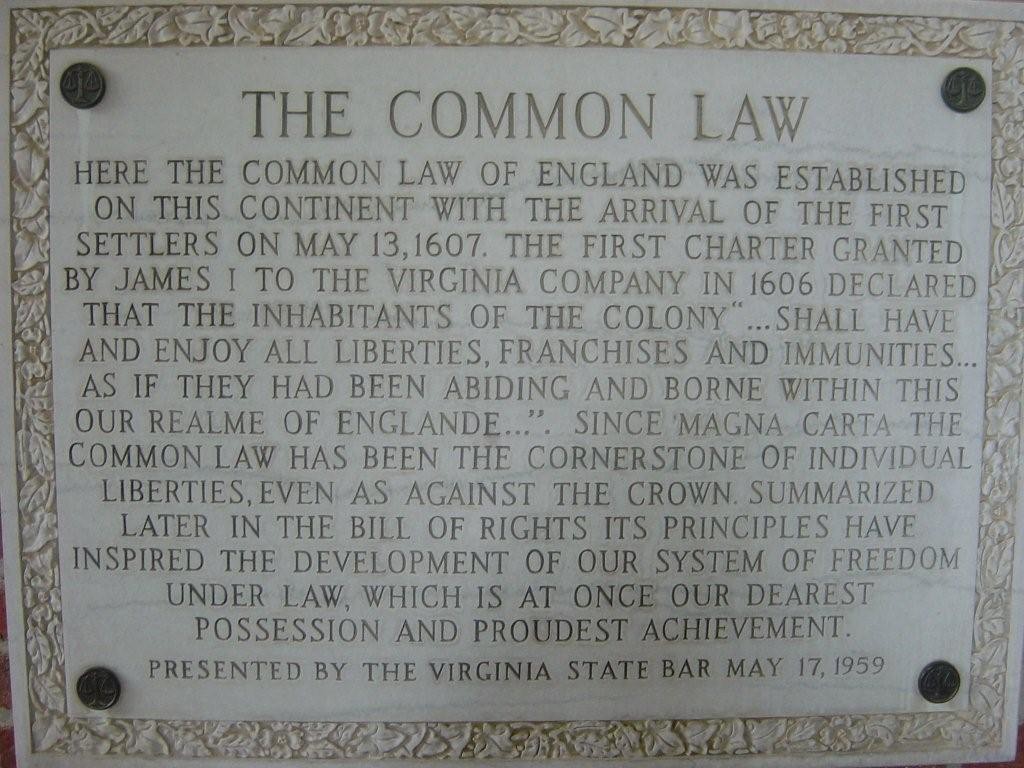Last week I wrote about the Magna Carta as part of the background of English law that the American colonists depended upon. When they took issue with the Mother Country about their rights, they had that document as a basis for their concerns.
 There are other aspects of English law that also were part of colonial America. One of these was the English Common Law. When a case came before a judge, and there might not be a precise statute that provided a solution for a case, the English Common Law prevailed. What was it?
There are other aspects of English law that also were part of colonial America. One of these was the English Common Law. When a case came before a judge, and there might not be a precise statute that provided a solution for a case, the English Common Law prevailed. What was it?
First, it was based on the “common” or traditional unwritten beliefs about right and wrong. This means society had a code of conduct that was accepted as a consensus. The judge would then decide a case after taking into account precedent (what has been decided previously in such cases) and those traditional beliefs emanating from the Common Law.
Here’s the key: those traditional beliefs were based on Biblical concepts.
Just like the Magna Carta, the Bible was the cornerstone of this Common Law. Nothing was supposed to be decided in opposition to the Biblical basis for a person’s rights.
Notice that “precedent” was also a part of the decisionmaking. That can sound scary in our modern practice. One of my complaints, along with other constitutionalists, is that our courts today simply look at the latest decisions made in similar courts and base their judgments on what others have done, regardless of the Constitution’s clear limitations on federal government authority or the Biblical basis for law. So what’s the difference?
It’s simply this: the English Common Law was not precedent divorced from eternal law, but precedent based on eternal law.
In other words, our Founders lived in a world in which Biblical right and wrong were always the bottom line for how judgments were to be made. Unfortunately, nothing could be further from the truth nowadays.
When Jamestown was founded, the Common Law was part of the heritage that came with this new settlement. If you go to Jamestown today, in the church that still exists on that original site, there is a plaque on the wall celebrating the Common Law as “the cornerstone of individual liberties”:
Whenever anyone tries to talk about how we have “progressed” as a society, I like to remind them that divorcing ourselves from a Biblical foundation is the opposite of real progress.

